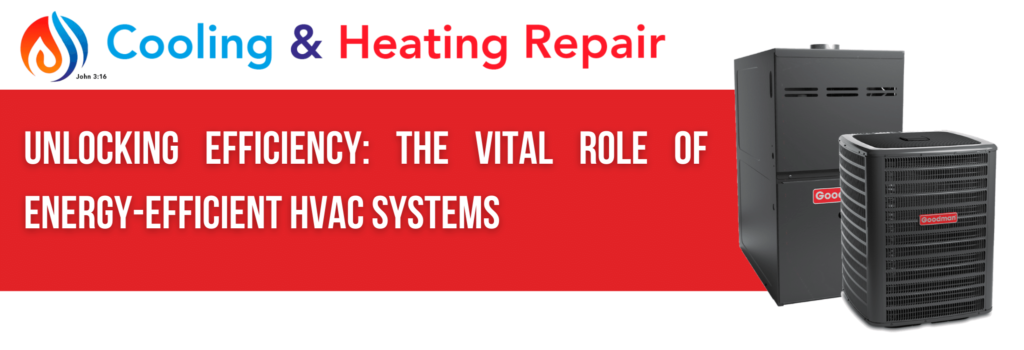Unlocking Efficiency: The Vital Role of Energy-Efficient HVAC Systems

In the dynamic landscape of today’s buildings and homes, the demand for comfort coexists with the urgent need for sustainability. Energy-efficient Heating, Ventilation, and Air Conditioning (HVAC) systems emerge as the cornerstone of a responsible and eco-friendly approach to indoor climate control.
Why Energy Efficiency Matters:
- Cost Savings:
Energy-efficient HVAC systems are designed to optimize energy consumption, leading to significant cost savings. By reducing energy bills, businesses and homeowners can allocate resources to other essential needs. - Environmental Impact:
Traditional HVAC systems often contribute to a substantial carbon footprint. Energy-efficient alternatives decrease greenhouse gas emissions, helping combat climate change and preserve our environment. - Compliance and Incentives:
Many regions encourage energy-efficient practices through regulations and incentives. Adhering to such standards not only promotes environmental responsibility but also opens doors to financial incentives and tax benefits. - Enhanced System Lifespan:
Energy-efficient systems undergo less stress, resulting in reduced wear and tear. This longevity not only decreases maintenance costs but also extends the overall lifespan of HVAC equipment. - Improved Indoor Air Quality:
Advanced energy-efficient HVAC systems often feature superior filtration and ventilation mechanisms. This translates to cleaner indoor air, promoting a healthier living or working environment by reducing allergens and pollutants. - Technological Advancements:
Energy-efficient HVAC systems leverage cutting-edge technologies, such as smart controls and sensors. These innovations offer precise temperature regulation, ensuring optimal comfort while minimizing unnecessary energy usage. - Resilience to Fluctuating Energy Prices:
In an era of unpredictable energy costs, investing in energy-efficient HVAC systems provides a hedge against price volatility. These systems are designed to adapt to varying energy prices, helping stabilize long-term operational costs.
In conclusion, the importance of energy-efficient HVAC systems extends beyond personal comfort—it is a commitment to a sustainable future. Businesses and homeowners alike can make a substantial impact by embracing these systems, not only enjoying immediate benefits but also contributing to a global effort to build a greener and more energy-conscious world. Upgrade your HVAC system today and become a steward of both comfort and environmental responsibility.


